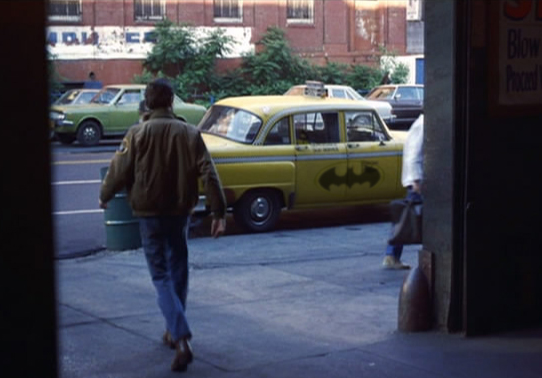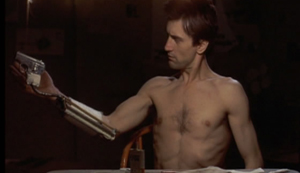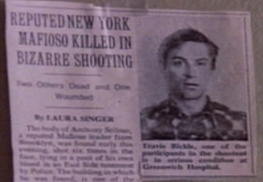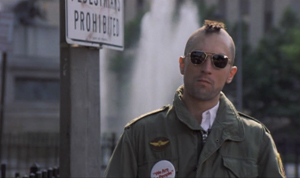Travis Bickle, Superhero
When talking about modern, more realistic, gritty superheroes, people most often mention Batman as the definitive example. When compared to more archetypal superheroes such as Superman, Batman is clearly a more realistic character. He has a past. In addition, he does not have any superhuman abilities — all he has is dedication, skill and wealth.
However, since the concept of a superhero can be bent to include characters that are less cartoony and in theory could exist in the real world, people often forget classic films that also could be seen as superhero movies. One whole genre full of potential overlooked “superhero” films is the 1970s vigilante genre with such classics as Death Wish with Charles Bronson and Scorsese’s Taxi Driver.

Taxi Driver is an interesting example for a variety of reasons. The movie exhibits extreme realism. The characters are everyday people — albeit from the seedy underbelly of life. There is a story of a hero single-handedly fighting evil.
The story could be thought as an origin story for the character of Travis Bickle, whose character shares common superhero traits: strong moral values, vigilantism and heroism. Origin stories, such as the graphic novel Batman: Year One or the movie Spider-man, are an important part of superhero mythos: it usually is the single defining reason why someone becomes a superhero. For Batman, this would be the death of his parents by a street punk (motivation) and later, him being an extremely wealthy industrialist (resources — skills).

Holy Bat-gun, Travis!
For Travis, the motivation is much more complex: in part, he is either just disgusted by the dark aspects of city life, he’s going insane or it could be that he tries to prove his manhood to his love-interest. In any case, he takes it as his duty to clean the city of all the filth. Even if it is just a single street at a time.
Travis’ resources obviously are limited compared to that of a millionaire’s. He does however have combat experience. He obtains weapons and routinely practices with them. In a feat comparable to a Bat-device, he builds a special device for quickly wielding his backup gun from his jacket sleeve.
At the same time Travis is preparing both mentally and physically for whatever he will do, he still maintains a facade of sorts by going to work. While his second persona clearly bleeds into public, it could be thought as a double identity — maybe just for himself. He is both a taxi driver and a killing machine. As if to differentiate his two sides, he shaves his head before going to work as a vigilante hero. Maybe as a logo of sorts, Travis adopts he catchphrase of presidential candidate Palantine and is seen sporting a pin carrying the slogan even when he makes an attempt at the candidate’s life.
One important feature of a superhero is that he or she continually fights crime and evil. When Taxi Driver comes to an end, it is not implied in any way Travis won’t do something similar in the future. In fact, his treatment as a hero probably just feeds his ambition of becoming a person of importance — a hero.

